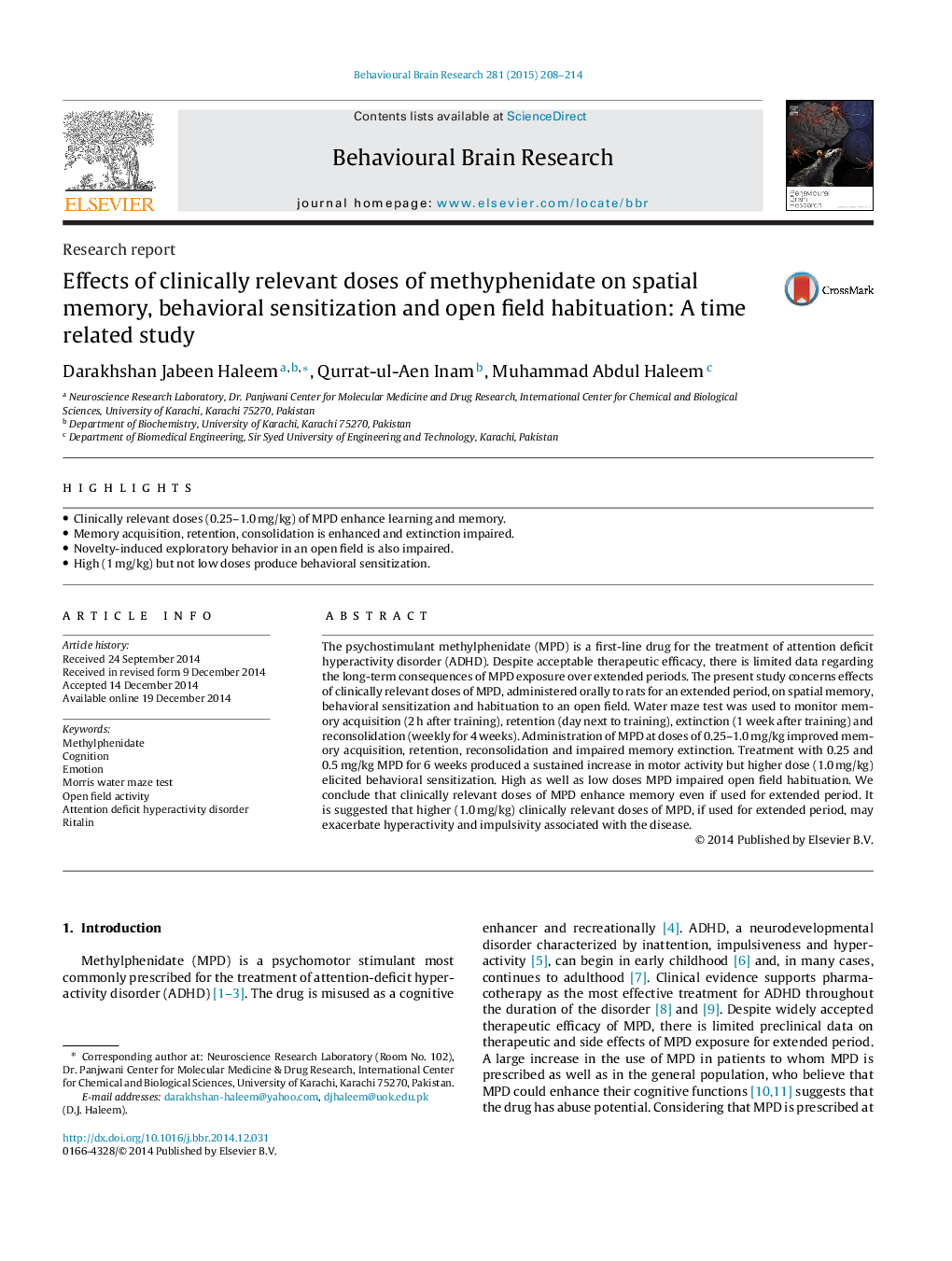| Article ID | Journal | Published Year | Pages | File Type |
|---|---|---|---|---|
| 6257002 | Behavioural Brain Research | 2015 | 7 Pages |
â¢Clinically relevant doses (0.25-1.0 mg/kg) of MPD enhance learning and memory.â¢Memory acquisition, retention, consolidation is enhanced and extinction impaired.â¢Novelty-induced exploratory behavior in an open field is also impaired.â¢High (1 mg/kg) but not low doses produce behavioral sensitization.
The psychostimulant methylphenidate (MPD) is a first-line drug for the treatment of attention deficit hyperactivity disorder (ADHD). Despite acceptable therapeutic efficacy, there is limited data regarding the long-term consequences of MPD exposure over extended periods. The present study concerns effects of clinically relevant doses of MPD, administered orally to rats for an extended period, on spatial memory, behavioral sensitization and habituation to an open field. Water maze test was used to monitor memory acquisition (2Â h after training), retention (day next to training), extinction (1 week after training) and reconsolidation (weekly for 4 weeks). Administration of MPD at doses of 0.25-1.0Â mg/kg improved memory acquisition, retention, reconsolidation and impaired memory extinction. Treatment with 0.25 and 0.5Â mg/kg MPD for 6 weeks produced a sustained increase in motor activity but higher dose (1.0Â mg/kg) elicited behavioral sensitization. High as well as low doses MPD impaired open field habituation. We conclude that clinically relevant doses of MPD enhance memory even if used for extended period. It is suggested that higher (1.0Â mg/kg) clinically relevant doses of MPD, if used for extended period, may exacerbate hyperactivity and impulsivity associated with the disease.
